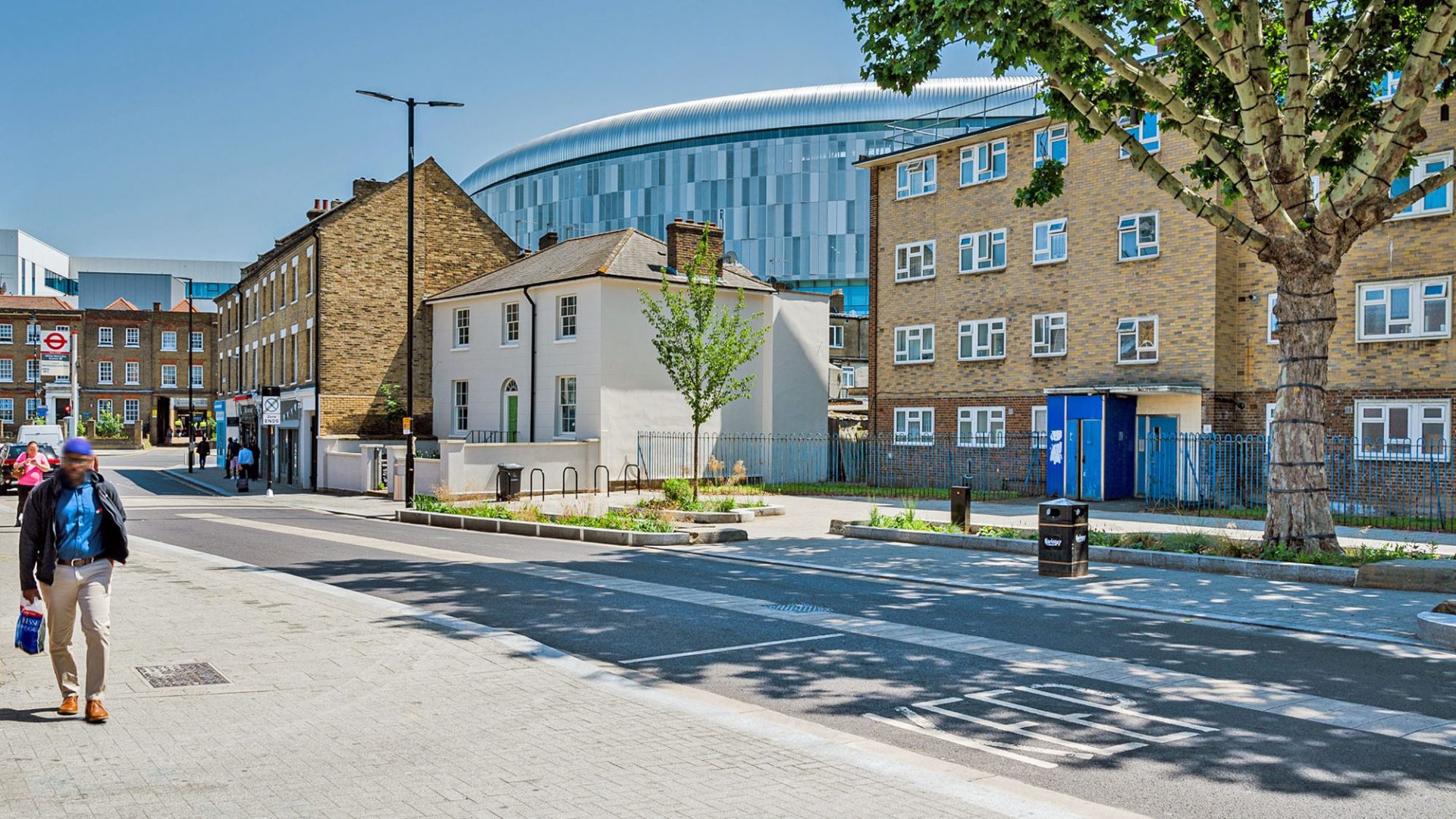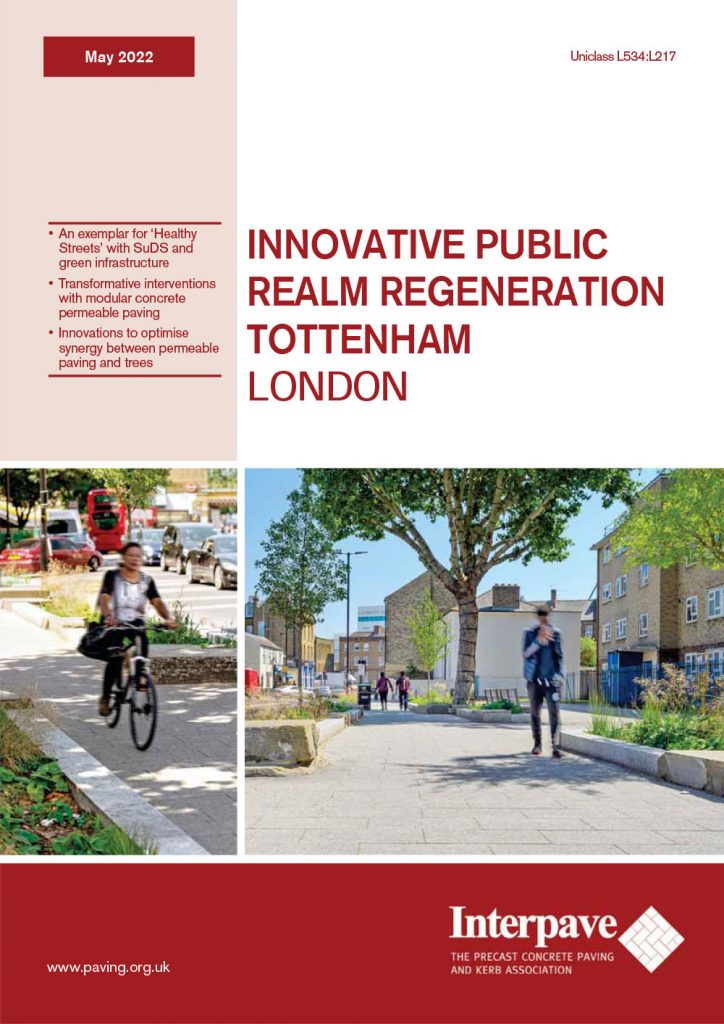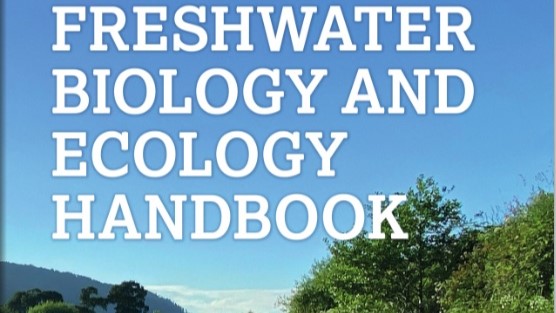A new case study from Interpave explores recent urban realm regeneration projects in Tottenham, London exemplifying the synergy of concrete block permeable paving and street trees to address climate change while delivering SuDS. It demonstrates important new techniques applicable to all urban areas.
The regeneration of White Hart Lane in north Tottenham, by muf architecture/art, was a pilot designed using ‘Healthy Streets’ principles. But it also applies innovative sustainable drainage (SuDS) techniques introduced by design collaborators Robert Bray Associates. This approach reduces flooding and pollution through the integration of bioretention raingardens to collect and treat polluted road runoff.
In addition, extensive concrete block permeable paving surfaces not only act as SuDS elements – attenuating and treating rainwater runoff – but also enable essential air/CO2 exchange and optimised water supply for tree roots, using a range of techniques. A new, concrete block permeable paved, adopted highway accepts runoff from White Hart Lane and other impermeable surfaces. At two points, structural tree pits span the full width below the road surface, connecting road-narrowing tree planters on each side, based on the ‘Stockholm Solution’ for urban tree planting.
At the nearby renovation of Broad Lane Square, the same designers take forward these principles with further innovations. In particular, ‘inverted raingardens’ protect existing trees and new green infrastructure, supplied with a gradual supply of clean water from extensive concrete block permeable paving catchments.
Concrete block permeable paving – whether full-construction with storage sub-base or applied as an overlay to an existing impermeable road base – works in synergy with trees. It collects available rainfall, including away from the canopy, and conveys it to trees and can be used over standard tree pits, proprietary tree planters, Stockholm System or other structural soil installations.
It enables irrigation and simple air/CO2 exchange essential to trees – without additional reservoirs or pipes – and also avoids tree root disruption common with other paved surfaces. Concrete block permeable paving technology will prove invaluable in delivering the street trees now demanded by planning policies for developments, as well as regeneration.




